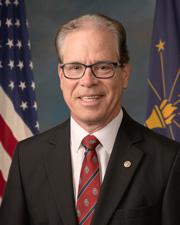0
Lowering Broadband Costs for Consumers Act of 2023
12/15/2023, 4:09 PM
Summary of Bill S 3321
The key provisions of the bill include measures to increase competition among broadband providers, which is intended to drive down prices for consumers. The bill also includes provisions to incentivize investment in broadband infrastructure in underserved areas, with the goal of expanding access to high-speed internet to more communities across the country.
Additionally, the bill includes measures to promote transparency in broadband pricing, making it easier for consumers to compare prices and choose the best broadband plan for their needs. The bill also includes provisions to protect consumers from unfair billing practices and ensure that they are not overcharged for broadband services. Overall, the Lowering Broadband Costs for Consumers Act of 2023 aims to make broadband internet more affordable and accessible to all Americans, with the goal of bridging the digital divide and ensuring that everyone has access to the benefits of high-speed internet.
Congressional Summary of S 3321
Lowering Broadband Costs for Consumers Act of 2023
This bill directs the Federal Communications Commission (FCC) to require large broadband service providers and edge providers (i.e., providers of online content or services, such as search engines and social media platforms) to contribute to the Universal Service Fund (USF). USF provides support for broadband and other telecommunications services to high-cost areas, schools and libraries, rural health care facilities, and the Lifeline program (an FCC program that provides a discount on phone and internet services for low-income consumers). Currently, only telecommunications companies (wireline and wireless telephone companies) contribute to USF.
The bill also directs the FCC to develop a mechanism to provide sufficient support to certain broadband providers that are eligible for funding for costs incurred in offering service in high-cost areas (rural areas where market forces do not support the cost of deployment and service). Eligible costs must not be recoverable by providers through revenue or other USF support. This additional support must be limited to one provider per area.



